|
Walking is a completely free and, in my opinion, underrated form of physical activity. Regardless of your age or fitness level it is something that everyone can do and benefit from and it has more benefits than you might think. Here are my top 8 reasons to get up and get walking today.
Increases your energy levels and improves mental health Walking, like any form of physical activity releases a range of “happy hormones” in our brain and body that not only make us feel good and energised but lower our pain levels too. During exercise the levels of our stress hormone also decrease, contributing to feeling more relaxed and energised for the rest of the day. Strengthens your bones Walking slows the rate of bone loss in the body specifically in the hips and legs and helps to increase bone density. This as a result delays and prevents the onset of conditions like osteoporosis and osteopenia as we age. Improves brain function As we age there is a natural decline in our cognition and grey matter in the brain. Physical activity and specifically walking has been shown to delay this decline and slow the onset of brain disorders such as Alzheimer’s and Dementia. Studies have shown that those who regularly engage in physical activity reduce their overall risk of developing these types of brain disorders by up to 40%. Fights Disease Regular exercise has been shown to decrease the likelihood of developing almost every chronic disease out there. This includes things like cancer, type 2 diabetes, cardiovascular disease, respiratory diseases and the list goes on and on. Some studies have found that people who engage in regular walks reduce their risk of developing diabetes by up to 60%. If you ask me that’s definitely worth a few extra steps to get those kind of benefits! Getting social I know during the current circumstances surrounding COVID-19 we are limited in how we can socialise but going for a walk with a friend or family member can be a great way to catch up while getting in your physical activity for the day. Instead of your usual cake and coffee catch up, next time ask your friend to join your for your stroll, or perhaps ring a friend while walking to help pass time a little quicker. Weight loss When starting out on a new fitness journey it can be overwhelming and a bit daunting in regard to where to start, what type of exercise to do and how to do it! Walking is a simple, cost effective and easy place to begin! It is a great form of aerobic exercise which assists in weight loss through increasing our caloric expenditure. The best part is it’s all self-paced, so if you want to work a bit harder, just increase your speed to help burn a few extra calories. Improves muscle and joint pain For our body to work at it’s best we need to keep it moving. This ensures that our muscles and bones stay strong helping to maintain healthy and pain free joints. Walking has been shown to reduce symptoms and pain associated with conditions such as arthritis and fibromyalgia. The low impact nature of walking is ideal to help improve function while also lowering pain in any affected joints or muscles. Reduces falls and trips If you are someone who frequently falls or has small trips, regular walking could help prevent these from happening, especially as we begin to age. Poor balance and weaker muscles in the legs and hips can cause us to shuffle when we walk increasing our risk of having a serious fall. Walking regularly improves balance and assists in strengthening our lower body to help prevent us from falling and suffering serious injuries as a result. Now that you know all the extra reasons a walk is so good for your health, why not grab a friend, or put on your favourite podcast and head out for a walk today! Aleisha Michael
0 Comments
A good night’s sleep is often the first thing to fall by the way-side when our lives become stressful or busy and not getting enough Z’s at night can do us more harm than you might think. How much sleep do I need? The average person spends up to one third of their entire life asleep but how much do we actually need each night? A lot of research has been conducted to try and produce an accurate answer to this question but a lot of it comes down to the lifestyle you lead, your current overall health and what you are required to do each day. The recommended amount of sleep we should get varies as we age;
What happens when we sleep? Sleep is our body’s ‘recovery’ period, indicating why it is so important. When we sleep a range of things happen to our body, firstly our breathing and heart rates drop back to a regular rate. As we progress into a deeper stage of sleep this is when our body begins to restore and repair. Blood pressure lowers and our muscles begin to relax as blood supply delivered to our muscles is increased to begin tissue growth and repair. Energy levels in the body and brain are restored and essential hormones for growth and development are released. Our appetite and hunger hormones are also regulated during this time which explains why a lack of sleep can cause us to want to eat more and contribute to weight gain. The stress hormone (cortisol) also decreases during our deep phases of sleep. Top tips for a better nights sleep:
Try implementing one or two of these tips into your life to improve your next snooze! Aleisha Michael Accredited Exercise Physiologist  Easter might be a little bit different this year to previous years for many people whilst social isolating. Perhaps you are usually involved in camping with friends, bush walking, tennis tournaments and other activities which help to counteract some of the goodies we eat and alcohol we drink across the weekend. But if you are planning on having a hot cross bun and easter egg or 2 (or 3!), you may want to plan some exercise in to your weekend! Pop Quiz
Apart from the amount of energy you need to expend through exercise to burn off those calories, the other hard part can be finding the energy to work out after consuming huge amounts of sugar. Excess sugar in the short term can wipe out your energy and make you crave more sugar. However, the good news is that the Journal Medicine & Science in Sports & Exercise has found that that the negative effects of extra fructose, sucrose and glucose were significantly less detrimental when participants exercised more. When physically exerting ourselves; we increase our insulin sensitivity. This in turn means that our body uses less insulin to absorb the sugar we consume, keeping our blood glucose levels in check, making us more energetic and curbing the chocolate cravings. Tips to stay on track this Easter: Save the indulging for Easter Sunday Rather than snacking on chocolate throughout the whole weekend, or even before, try and save eating easter eggs only for Sunday. And for the kids, encourage grandparents or other relatives who wish to spoil them to provide alternative gifts to chocolates, like books or games to decrease the amount of chocolate they also receive and consume. Quality of Quantity Treat yourself to some good quality chocolate eggs for Easter. These are generally smaller, and you’ll want to savour every mouthful! Choose Dark Chocolate Dark chocolate not only contains less sugar and more fibre and iron than milk chocolate, it is also packed with anti-oxidants. Get Moving Easter is a great time to spend time connecting with family. Try and choose active pastimes like a morning walk or bike ride, a hit of tennis, or anything that gets you out and moving. Or try our high intensity workout below. You also might not feel as guilty when you treat yourself to some chocolate! High Intensity Easter Workout Start with a 5-10 minute warm up including dynamic stretches, and then start the circuit and complete it 2-3 times. Complete with a cool down and static stretches. Click here to download. This circuit is an intermediate circuit, and may not be suitable for all fitness levels, therefore please use commonsense when deciding if this exercise program is right for you. Some of us might be going a bit stir crazy with social isolation, but all jokes aside, Mental Health is a serious health concern, and exercise can play a big role in helping to boost our mental health.
Before the pandemic, one in five Australians experienced a mental health illness each year. But the uncertainty and instability around Coronavirus has the potential to exacerbate existing anxiety and depression and contribute to the onset of new mental health problems. What steps can you take to improve your mental health? There is research around a few different areas that we can work on to improve our mental health, these being: sleep, nutrition, social connectedness, physical activity/exercise, stress management and avoiding risky substance use. Why does exercise work so well in improving mental health? When we exercise, we release around 40 different types of endorphins which are hormones in our body that work on different parts of the brain, having all different effects. These different endorphins have a role in waking up the brain and getting it going, improving mood, feelings of wellness, motivation and jump-start our attention system, helps to improve how we perceive and regulate our emotions, gain improvements in self-esteem from our hormones, but also because we feel a sense of accomplishment of completing the exercise and if we are exercising in a group, we get social connection and a sense of community. Exercise also helps regulate the same neurotransmitters that antidepressants target. And, additionally, mindful exercise may also be helpful in allowing our bodies to regulate our stress hormones, such as cortisol, and reduce inflammation – which is a key predictor of depression and anxiety. There are so many restrictions on what we can and can’t do at the moment, so what can we do to exercise? Outdoors Getting out into the great outdoors and walking, running, bike riding, etc as long as you are by yourself or with only one other person is a great option. However, for people who are wanting to stay at home, we need to be a bit more inventive. Working from home? The lines of work and play can get a bit blurred, so make sure you book exercise in to your diary so that you achieve it and get a break from work. You want to ensure that you are taking regular breaks, getting up from your computer and walking around at least every hour, and undertaking some desk stretches to reverse some of the hunching over computer posture. Exercise at home? For those that don’t want to leave your property or home to exercise for your mental health, we still need to ensure we accumulate a minimum of 10-minute non-stop chunks of exercise at a time. This could include laps of your verandah, or driveway, dusting off the old exercise bike out the shed, or a circuit of step ups, marching on the spot, shuttle walks or runs, skipping, - basically anything that gets your heart rate up for at least 10 minutes continuously. Then, you need to repeat this sequence another 2 times throughout the day so that you are achieving 30 minutes each day of moderate intensity heart raising exercise. Online options? If you are someone who is not motivated to exercise by yourself, there are many paid and free exercise options available online – whether they be prescribed home programs or group classes. You just need to check the credentials of the person providing the program as there are many people who are not trained in exercise trying to sell exercise programs at the moment. Check out our online programs here And for social interaction at the very least you could face time or phone a friend whilst you are undertaking your laps of your verandah. Because as we know staying connected is very important for our mental health. How much should we be undertaking to improve our mental health?
What if exercise is not enough? If you feel you need additional support for your mental health, you can make an appointment with your GP and tele-health options are available if you do not want to go to the clinic. If you need crisis support then Lifeline telephone counselling is available by phoning 13 11 14. |
AuthorSLisa Parkinson Archives
July 2024
Categories
All
|

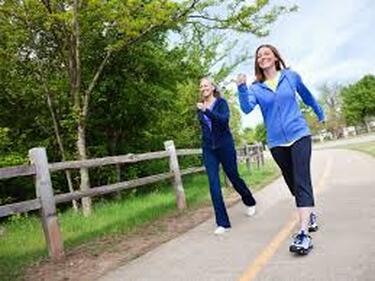
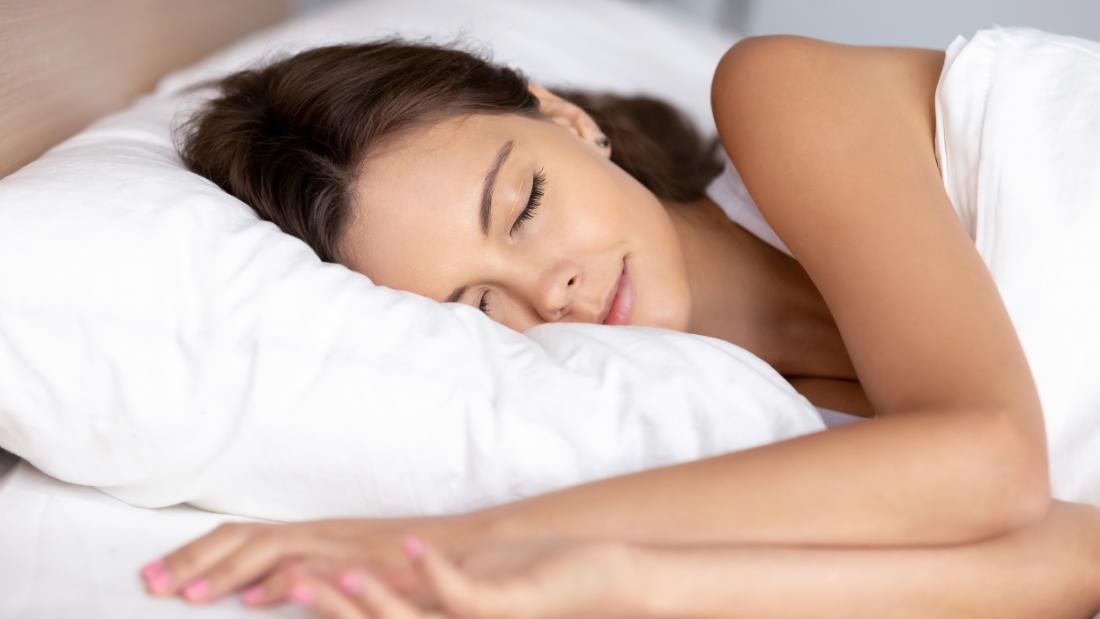
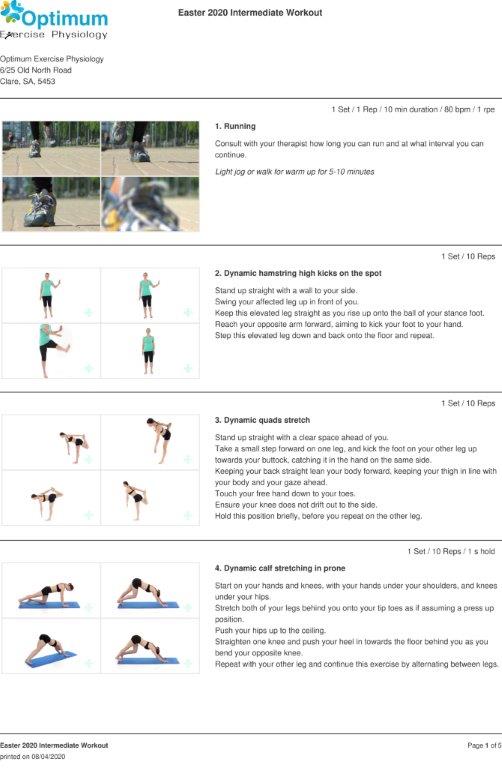
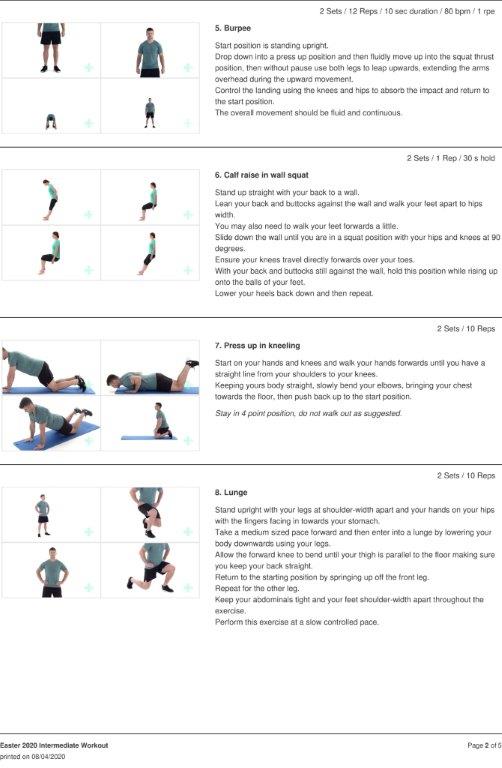
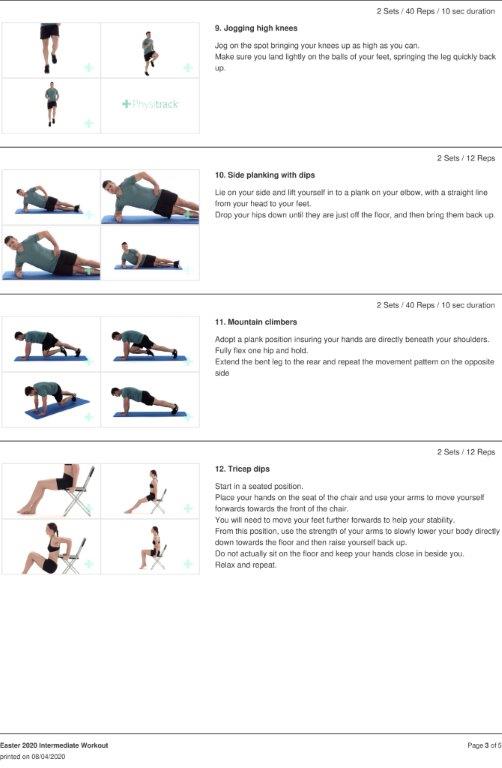
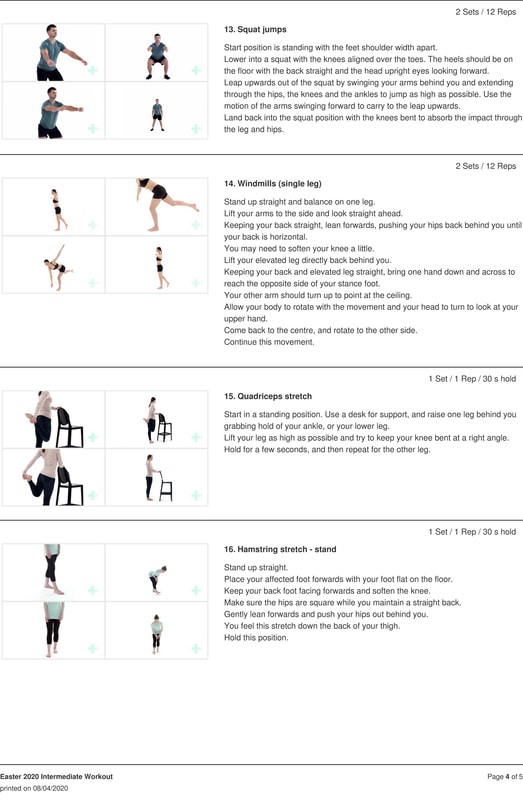
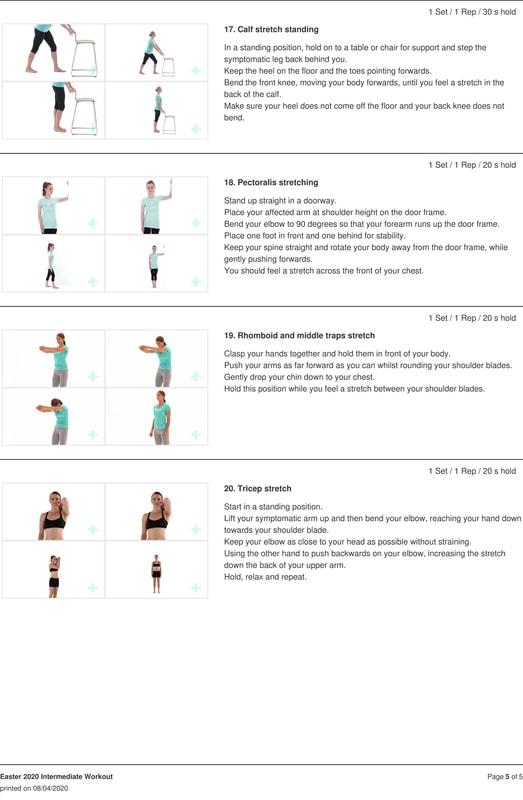
 RSS Feed
RSS Feed